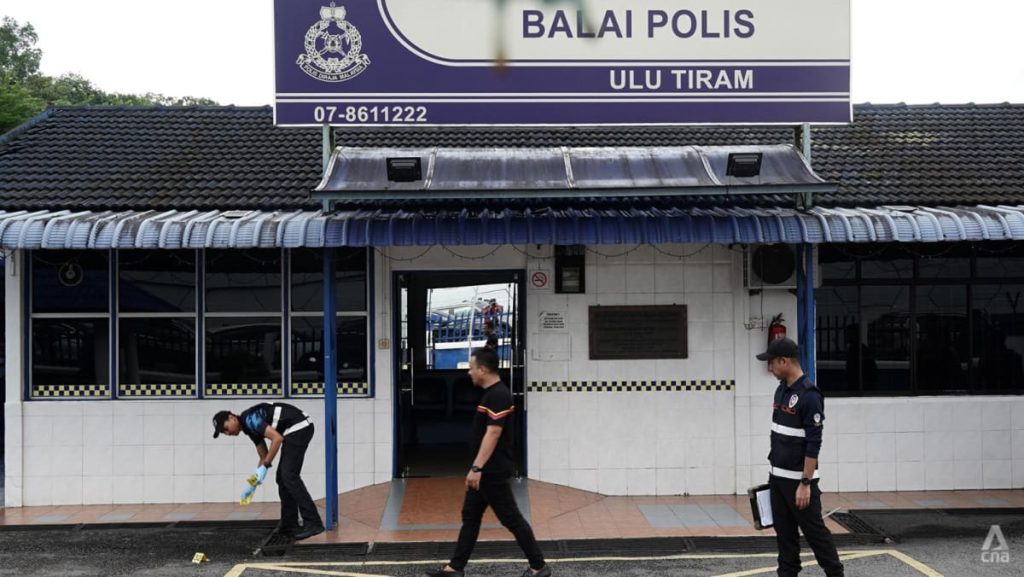Speculation has arisen over the potential return of the terrorist group JI following an incident involving a family living in Kampung Sungai Tiram, located close to the Luqmanul Hakiem religious school set up by JI’s spiritual leader Abu Bakar Bashir in the 1990s. Notable JI militants, such as Noordin Muhammad Top and Mukhlas, attended the school and went on to carry out major attacks in Indonesia, including the 2009 Jakarta hotel bombings and the 2002 Bali bombings. Despite living in a community where the school was situated, villagers stated that the family appeared reserved and did not exhibit any extremist tendencies.
Authorities have emphasized that the suspect in question was acting as a “lone wolf” and did not have plans to target the wider public. In their investigation, police interviewed 46 individuals who were flagged as persons of interest in their database. Additionally, two individuals who were making a police report at the time of the attack were released from custody, along with the suspect’s family members. Initially, the police found it suspicious that these individuals were reporting an incident that allegedly occurred two years prior, leading them to believe that the report could be a distraction tactic to divert attention from the true perpetrators of the attack.
The incident has sparked concerns about a potential resurgence of JI activity in the region, given the connections between the family involved and the extremist group. The proximity of their village to the religious school attended by key JI members has raised questions about whether radical ideologies may have influenced the suspect’s actions. Authorities have been vigilant in investigating the incident to ensure that any potential links to terrorism are thoroughly explored and addressed, despite initial indications that the family did not display overt signs of extremism.
Law enforcement officials have taken a meticulous approach to the case, conducting interviews with numerous individuals flagged as potential persons of interest to gather information about the suspect and possible connections to extremist networks. The release of the individuals who were making a police report at the time of the attack suggests that the authorities are carefully evaluating all angles of the case to determine the true motivations behind the incident and prevent any further attacks. By identifying and addressing possible distractions or false leads, the police aim to focus their efforts on uncovering any links to terrorism and ensuring the safety of the community.
The involvement of individuals with ties to the suspect in making a police report during the incident has raised suspicions about their potential role in diverting attention from the suspect and his motives. The decision to release them from custody indicates that the authorities are taking a strategic and thorough approach to the investigation to ensure that all leads are explored and any potential collaborators or distractions are identified. By ruling out false leads and focusing on concrete evidence, law enforcement aims to prevent future attacks and dismantle any existing terrorist networks that may be operating in the region.
Overall, the incident involving the family living near the Luqmanul Hakiem religious school has drawn attention to the potential resurgence of terrorist activities in the region, particularly in light of the connections between the family and the extremist group JI. As authorities continue to investigate the case and gather information from individuals flagged as persons of interest, they are taking a cautious and systematic approach to ensure that all leads are thoroughly explored. By remaining vigilant and focused on uncovering any links to terrorism, law enforcement aims to protect the community and prevent further attacks from occurring.


